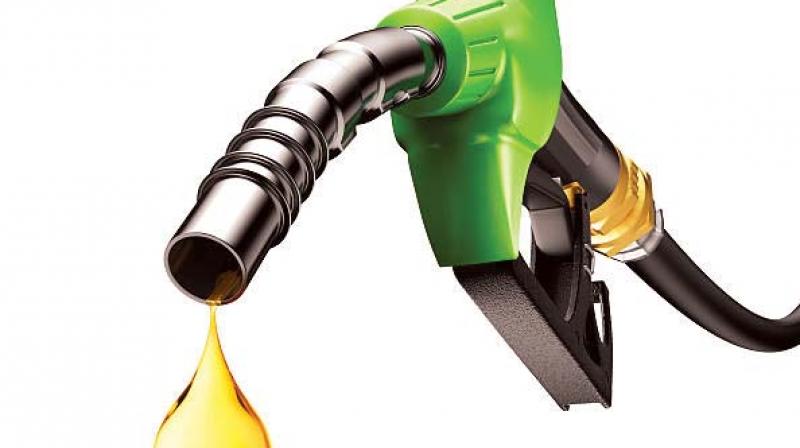Windfall oil tax on ONGC in offing to soften fuel prices
The Centre levies Rs 19.48 as excise duty on a litre of petrol and Rs 15.33 on diesel.

New Delhi: The government may levy a windfall tax on oil producers like Oil and Natural Gas Corp (ONGC) as part of a permanent solution it is working on for moderating the spiralling retail prices of petrol and diesel.
The tax, which may come in form of a cess, will kick in the moment oil prices cross USD 70 per barrel, sources privy to the development said. Under the scheme, oil producers, who get paid international rates for the oil they produce from domestic fields, would have to part with any revenue they earn from prices crossing USD 70 per barrel mark.
The revenues so collected would be used to pay fuel retailers so that they absorb spikes beyond the threshold levels, they said. This may be accompanied by a minor tinkering with excise duty rates to give immediate relief to consumers.
States too would be asked to cut sales tax or VAT to show a visible impact on retail prices. Sources said the thinking in the government is to levy cess on all oil producers - both public and private sector - so as not to attract criticism of stifling state-owned explorers.
A similar tax was considered in 2008 when oil prices were on the rise but the idea was dropped after stiff opposition from private sector firms like Cairn India. Windfall tax, they said, is levied in some of the developed countries globally.
The UK in 2011 raised the tax rate to be applied to North Sea oil and gas profits when the price is above USD 75 per barrel. China on April 1, 2006, began levying the special upstream profit tax on domestic oil producers to redistribute and allocate the windfall income enjoyed by the oil companies and subsidise disadvantaged industry and social groups that are most affected by soaring crude oil prices. It in 2012 raised the windfall tax threshold to USD 55 per barrel.
Sources said the windfall tax is one of the options being considered by the government as a permanent solution to dealing with the problem of spike in oil prices. This follows reluctance on part of the finance ministry to cut excise duty as it has to ensure adequate funds are available to social welfare schemes in the election year.
In particular, resources have to be arranged for the National Health Protection Scheme (NHPS) that aims to provide health insurance cover of Rs 5 lakh to every eligible household.
On Thursday, Law Minister Ravi Shankar Prasad had stated that the government will take a long-term view on the retail prices of petrol and diesel, which have touched record high, instead of having an ad hoc measure.
Petrol and diesel prices were raised for the 11th day in succession today as the state-owned oil firms gradually passed on to the consumer the increased cost of international oil that had accumulated since a 19-day freeze was imposed just before Karnataka elections.
Since the time the hiatus ended on May 14, rates have gone up by Rs 2.84 a litre in case of petrol and Rs 2.60 in diesel. Petrol costs Rs 77.47 a litre in Delhi and diesel Rs 68.53.
Sources said a USD 70 per barrel threshold for the windfall tax is sufficient to cover for capital expenditure requirement of ONGC and other oil producers. Incidentally, ONGC and Oil India Ltd had till June 2015 provided for up to 40 per cent of the annual fuel subsidy bill.
This they did by way of providing discounts on crude sold to downstream refining and marketing companies, IOC, BPCL, and HPCL. This discount helped the retailers make good a part of the losses they incurred on selling petrol and diesel below cost.
The government raised excise duty nine times between November 2014 and January 2016 to shore up finances as global oil prices fell, but then cut the tax just once in October last year by Rs 2 a litre.
The Centre levies Rs 19.48 as excise duty on a litre of petrol and Rs 15.33 on diesel. State sales tax or VAT varies from state to state. Unlike excise duty, VAT is ad valorem and results in higher revenues for the state when rates move up.

